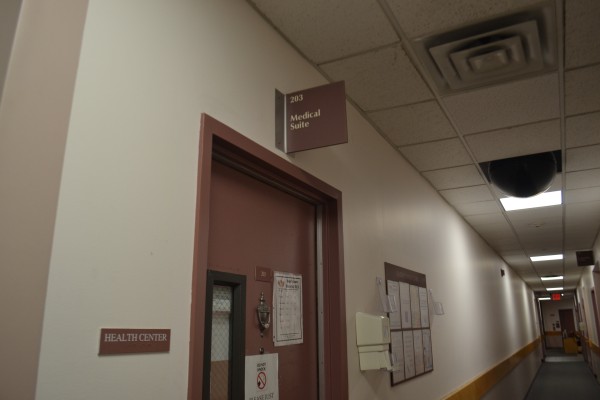GO! Ghana Postponed Due to Ebola
November 20, 2014

(Sri Stewart / The Observer)
Fordham University’s latest precautions against Ebola include canceling the upcoming Global Outreach (GO!) project to Ghana.
The decision to cancel the service project was made by Fordham’s Office of University Mission and Ministry staff. The project, which takes place during the summer, works closely with People in Action for Cultural Enrichment (PACE) Ghana – an organization that has a cultural exchange program with U.S. communities to provide educational and health resources to strengthen rural communities in Ghana. Although there are currently no reported cases of Ebola in Ghana, Stephen McGowan, coordinator of GO! at Fordham College at Lincoln Center (FCLC), stated that the decision to cancel the project came with the unpredictability of the ongoing Ebola crisis in West Africa.
“We would love to make a decision in May when the project is, but in reality, we have to pick a leader now, [and] a team very soon, so as a precautionary step we needed to make a decision moving forward,” he said. As for PACE Ghana’s reaction to the cancellation, McGowan said, “They were very understanding … they know that we have to take precautionary measures.”
Former GO! Ghana leader Jaime Rodriguez, FCLC ’14, echoed McGowan’s statements and added, “We haven’t been canceled or terminated our relationship with that organization. We are still in contact with PACE Ghana and so this is only a postponement of us going back to Ghana.” As to his personal feelings on the cancellation, he said, “It broke my heart to know that we won’t be sending a team this year … we’re really missing out, Fordham is really missing out on this opportunity to be transformed by this project.”
Despite not sending a team to Ghana, Global Outreach is planning to organize fundraisers and book drives next semester, the proceeds of which will go towards helping PACE Ghana. Rodriguez said, “[My team] was very sad to hear that it was canceled. We’re taking steps to … or figuring out a way [that] we can be involved and so we hope to sort of organize and create some sort of fundraising opportunities.” Postponing GO! Ghana is not the only action Fordham has taken in regards to Ebola.
As of Oct. 24, Fordham barred students, faculty and staff from studying in or traveling for University business in the three countries heavily affected by Ebola – Sierra Leone, Guinea and Liberia, according to FCLC’s Health Center. In addition, the Health Center advises that students take precautions when traveling on personal time as well. Bob Howe, senior director of communications at Fordham, said in an email, “We’re monitoring the situation, including the advisories issued by the [Center for Disease Control], and are reviewing any travel on a case-by-case basis.” He also added, “Of course, we haven’t had any symptomatic members of the University community – believe me, you’d know without having to ask.”
The CDC has issued warnings that mirror Fordham’s newest procedures for precaution – including advising U.S. citizens and residents against traveling to the three heavily affected countries on non-essential business, according to their website. The policies of both Fordham and the CDC reflect the gravity of the situation in West Africa, with over 5,000 confirmed deaths since the outbreak began.
As of Nov. 11, the United States is Ebola-free. Cases in Texas and New York were all treated and the patients were released, according to the New York Times. While some may say that this is a sign of hope and a reason to breathe a sigh of relief, there is still an overwhelming number of Ebola cases in parts of West Africa — over 14,000 cases have now been reported according to the CDC. Because of the growing number of cases, Fordham has decided to put these extra procedures into place as a precaution.
Fordham is one of many schools in New York to take action. Both the New York Institute of Technology (NYIT) and New York University (NYU) have issued travel warnings to its students, stating that students, faculty and staff should refrain from making non-essential trips to Guinea, Sierra Leone and Liberia. In addition, both schools require that students with possible Ebola signs or symptoms report to their respective health centers, according to their websites.









